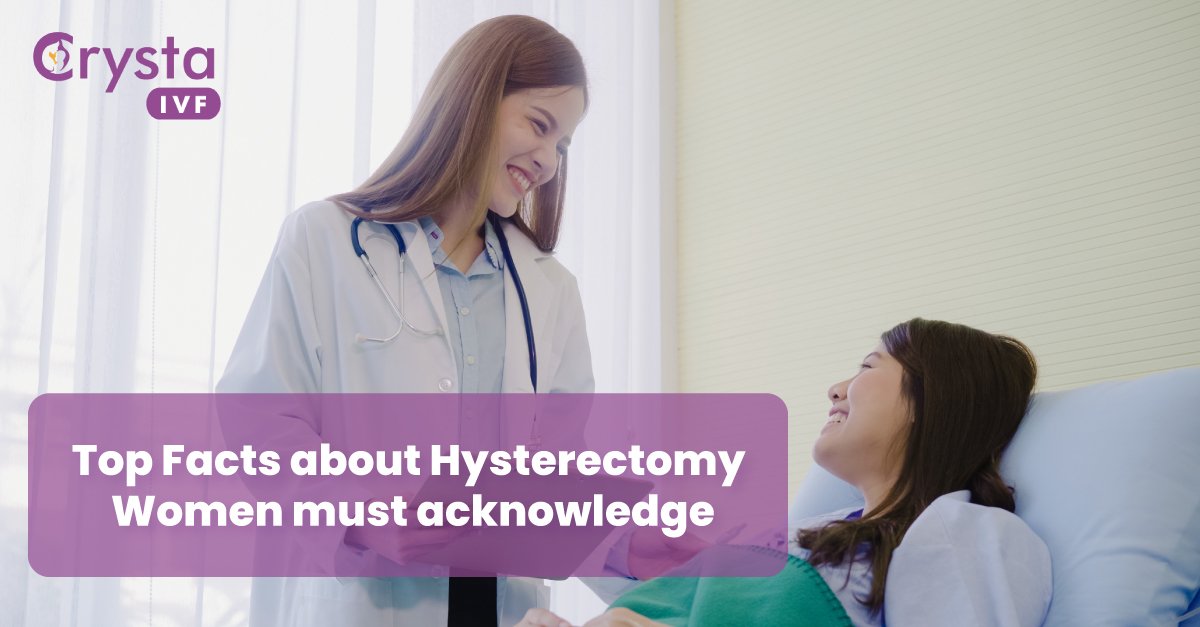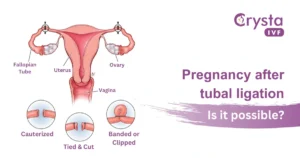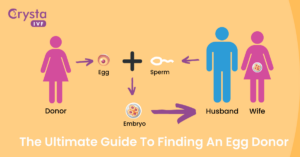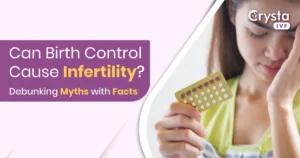Overview
Usually, women between 30 to 50 years of age undergo a Hysterectomy. The percentage of the treatment is directly proportional to the age.
Facts reveal that 11% of women undergoing Hysterectomy were aged 45 to 49 years, 8% were between 40 to 44 years, around 5% were aged between 35 to 39, and only 3% of women were 30 to 34 years of age.
If your doctor recommends you for a Hysterectomy Surgery, then here are all the details one should know about the procedure. The blog underneath shares all the necessary information about causes, risks, costs, types of hysterectomy, and everything else about hysterectomy basics.
What is Hysterectomy?
Hysterectomy is a surgical procedure that removes the uterus or womb from the female reproductive system. After a hysterectomy, women can’t get pregnant.
However, the reasons leading to Hysterectomy can be different; the most significant ones are detailed below.
Uterine Prolapse
It is a condition that shifts the uterus from its original position towards the vaginal canal.
Uterine Fibroids
The gynecologists suggest hysterectomy in the uterine fibroid condition that leads to excessive pain, bleeding, and other severe complications.
Cervical Cancer
The only solution to stop the adverse risks of cervical cancer, uterus cancer, or ovarian cancer is a hysterectomy procedure.
Endometriosis
In case of severe endometriosis, where the internal tissue lining of the uterus outgrows drastically to block fallopian tubes, ovaries, and the entire tissue lining, the solution is hysterectomy.
Chronic Pelvic Pain
There can be multiple reasons for pelvic pain, but it can cause adverse effects if it lasts more than six months. For treating this severe condition, the doctors recommend Uterus Removal Surgery.
Adenomyosis
Adenomyosis is a condition where the uterus lining grows deep into the muscular lining of the uterus and leads to its significant thickening. The thickened walls might also lead to excessive pain, bleeding, and other consequences. Here, nothing else but the Uterus Removal heals.
If you suffer any of the issues mentioned above and your trusted Gynecologist suggests Hysterectomy Surgery, consider it to avoid further complications.
However, the type of hysterectomy depends on the personalized condition of an individual and the cause of surgery.
Types of Hysterectomy
Depending on the severity of the condition, the surgeon might recommend partial or complete removal of the uterus. Below-Mentioned is the description of the medical terms and procedures when your doctor says ovarian or uterus removal.
Total Hysterectomy
The doctor removes the entire uterus and cervix in the Total Hysterectomy or Total Abdominal Hysterectomy. After the total hysterectomy, the woman neither has periods nor can get pregnant.
After the surgery, you may or may not face other symptoms of menopause depending on your age and hormonal behavior.
Partial Hysterectomy
If the doctor removes only the uterus (top left part) and not the cervix during the surgery, it’s a Partial Hysterectomy. Irrespective of the partial or total hysterectomy, pregnancy is rare. It is also called supracervical or subtotal hysterectomy.
Radical Hysterectomy
The doctors usually recommend radical hysterectomy for women with cancer. In this surgical procedure, remove the entire uterus along with the sides of the uterus, the top part of the vagina, and the cervix.
If necessary, the doctors might remove fallopian tubes and ovaries too.
Conditions When Hysterectomy is Necessary
When women’s reproductive health impacts their overall health significantly, doctors recommend a hysterectomy. Here are a few of the conditions that mandate Hysterectomy Surgery.
Heavy Menstrual Flow
When the women lose significant blood during the periods it starts impacting their quality of life. Doctors generally suggest hysterectomy. Heavy Periods might lead to several health issues, like:
- Extreme Stomach Pain
- Pelvic Pain
- Cramps
- Low Hemoglobin, and
- Other Severe Complications
In short, when periods might risk life and there is no other way to control it, hysterectomy is the only solution.
The cause of extended and heavy menstrual flow might be fibroids. However, most of the time it remains unknown.
Special Note
The doctors try to control the condition with other ways (if possible); hysterectomy is considered as the last option. It is because pregnancy after hysterectomy is close to impossible.There Are Only 72 Cases of Ectopic Pregnancy Post Hysterectomy Across The World.
Uterus Prolapse
When the supporting tissues of the womb weaken, and drop down the uterus from its normal position, it causes severe complications. Some of the symptoms of the uterus prolapse include the following.
- Difficulty in Intercourse
- Urinary Incontinence
- Uncomfortable Feeling of Vaginal Dripping
- Unbearable Back Pain
Uterus Prolapse is generally a consequence of adversities during childbirth.
Pelvic Inflammatory Disease
Pelvic Inflammatory Disease is an infection of the women’s reproductive system. If it’s detected in the initial stages, it’s possible to treat the same through antibiotics. However, if it spreads the solution is Total Hysterectomy Surgery.
The spread of PID causes severe pain, & in the worst case might damage the fallopian tubes and womb.
Advanced-Stage Cancer
Hysterectomy is the only way to get rid of Advanced Stage Cancer be it Cervical Cancer, Ovarian Cancer, Fallopian Tube Cancer, or Cancer In The Womb.
Ignoring hysterectomy in severe conditions might risk life.
Special Note:
One of the essential things to consider while deciding for a hysterectomy surgery is you might have to face early menopause and you can’t conceive any further.
Risks Associated With Hysterectomy
Apart from the popularly known drawback or risks associated with hysterectomy, that is infertility; there exist a few other risks as mentioned below.
- Bleeding
- Bladder or Bowel Damage
- Ureter Damage
- Vaginal Issues
- Blood Clotting
- Ovary Failure
- Infection, and
- General Anesthetic Problems
However, the issues associated with Hysterectomy Surgery are not very common, and are a consequence of ignorance or not following the medical advice precisely.
It is recommended to get back to normal life after complete recovery and proper medical diagnosis.
Recovery Time Post Hysterectomy Procedure
The recovery of a patient post-hysterectomy process entirely depends on:
- Patient’s Age
- Cause of Hysterectomy, and
- Hysterectomy Procedure
Usually, it takes 6 to 8 weeks for Hysterectomy Surgical Recovery if you take all the precautions. The more you follow the ideal diet and lifestyle post-surgery; higher are the chances of early recovery.
Necessary Precautions After Hysterectomy Surgery
Every medical process requires following the precautions for speedy recovery. Hysterectomy being one of the typical surgeries needs special care. Some of the necessary precautions are listed below.
- Avoid lifting heavy objects for a minimum of six weeks after the surgery.
- Take enough rest, and move only when necessary.
- Do not resume sexual activity for six to ten weeks, depending on your recovery rate.
- Say no to strenuous and prolonged physical activity.
- Visit your doctor as per the appointment and follow their instructions without fail.
Not following the precautions might increase both the recovery time and complications.
Hysterectomy Cost
The cost of hysterectomy surgery might vary as per different factors. Some of the significant ones include:
- Procedure (Partial or Total Hysterectomy)
- Surgeon’s Experience
- Location
- Complications
- Diagnosis
- Medication and Recovery Time
Taking into account all the considerations, Hysterectomy Cost varies between INR 75,000 to 2,75,000. However, for an exact cost, you should consult your doctor.
Final Words
Deciding for a Hysterectomy might be one of the most challenging decisions. One must avail of complete counseling before undergoing the treatment. However, delays in some conditions might invite risks, but you still can clarify all your doubts after talking to the Crysta IVF experts.
It’s advised if you suffer any of the issues mentioned in the blog, consult the doctor at the earliest possible. If you get treatment in the early stages of facing the symptoms, there are chances of subsiding the surgery and finding alternate solutions.
Hope it was a good read for you. Stay tuned for more information on Women’s Fertility, Men Fertility, Infertility Issues, Infertility Treatment, and more.




